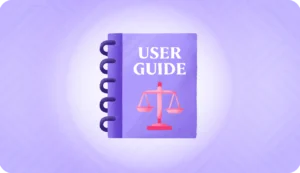Before initiating any commercial engagement, it is important for an organization to verify the customer’s identification following a Know Your Customer (KYC) process. Previously, only the banking sector was subject to KYC requirements. However, with the increasing money laundering activities in other sectors, the process was gradually included in non-financial businesses as well under the names KYP, KYB, and KYT.
What is KYC compliance?
Non-financial and financial organizations must comply with KYC regulations. According to regulatory requirements, required entities create methods for client identification and routinely verify their customer. Businesses benefit from KYC compliance because it helps them avoid fines and lessen financial fraud.
Financial Industry Regulatory Authority Rule 2090 (Know Your Customer) and FINRA Rule 2111 are two regulations governing KYC.
- According to FINRA Rule 2090, every broker and dealer must use reasonable diligence while opening and managing client accounts. They must also be aware of each customer’s profile, keep records, and identify individuals authorized to act on their behalf.
- According to FINRA Rule 2111, a broker-dealer must have a reasonable basis to believe that a recommended transaction or investment strategy involving a security is suitable for the customer. Before making any purchases, sales or securities exchanges on the client’s behalf, this KYC requirements regulation presupposes that the broker-dealer has thoroughly examined the client’s current facts and profile, including the client’s other securities and investments.
Procedure for KYC compliance
Although KYC policies differ from country to country, the following standards are present in all of them:
Customer’s identification
Before reviewing a customer’s identification documents, it is important to double-check and carefully review all of the relevant data for any discrepancies. The prospective client should not be listed on any of the sanction lists.
Due diligence for the customer
The customer’s data should be gathered from reliable sources. The relationship’s goal, intended nature, and significant beneficiaries should be identified, and the connection should be continuously monitored to ensure the customer’s behavior is in line with the data.
Enhanced due diligence
Enhanced due diligence creates a greater level of identity assurance by considering the customer’s identity and addressing and evaluating the customer’s risk category. This process reduces the likelihood of money laundering through the identification and investigation of high-risk consumers and suspicious transactions. Organizations should use technology’s power to identify and look into financial crimes. Software for enhanced due diligence uses information from Sanctions lists, PEPs lists, and Adverse Media.
Important KYC laws
Anti-money Laundering (AML) regimes frequently include KYC laws; Financial Action Task Force (FATF) guidelines impact these laws. The KYC laws that have been put into place worldwide are listed below:
- The Banking Secrecy Act (BSA) mandates that reporting institutions (mainly banks) take the required steps to verify their customers and alert FinCEN to any suspicious activity. According to the US Patriot Act’s stipulations, banks must develop client identification programs.
- The Money Laundering Act of 2017 (MLA) establishes customer verification rules for reporting entities.
- The AML/CTF Act of Australia, which AUSTRAC has put into effect, lays out the requirements for KYC and AML compliance for vetting private individuals and business clients.
- KYC requirement is a basic due diligence procedure used by businesses to evaluate their clients’ history, sources of funds (whether they are legitimate or not), and identification and KYC compliance check.
- KYC is a crucial component to avoid money laundering and stop liability and other banking scams. Although implementing KYC compliance and fraud prevention day can be a taxing effort for businesses, it creates a safe and reliable environment for facilitating organizational and economic transactions.
How can HyperVerge help?
Our AI models are trained for real-time image and video analysis and are optimized for low bandwidth deployments. The cutting-edge AI used by HyperVerge technology is precise and scaled. For smooth customer onboarding, we provide the quickest digital verification process, KYC/AML KYC compliance, and fraud prevention for all industries. So far, we have handled more than 650 million identification and fraud checks.
Conclusion
Online KYC demand is rising as more companies enter digital marketplaces. Online consumer verification options share a heavy compliance burden with offline customer verification methods, although not all customer identification procedures in KYC might be outsourced. To meet the expectations of digital consumers, KYC solutions provide thorough consumer identification with high accuracy and speed. Try HyperVerge today!
FAQs
What are the crucial guidelines for adhering to KYC compliance?
To comply with AML rules, knowing your customer identification procedure in KYC is a legal requirement and is essential for evaluating consumer risk. Understanding a consumer’s identity, financial activity, and the risk they pose is necessary for effective KYC.
What are the elements of KYC?
Identification document verification, face verification, document verification using utility bills, biometric verification, and proof of address are all part of the KYC process.
Who requires KYC compliance?
According to the law, financial institutions must use KYC to verify a customer’s identification and pinpoint risk concerns. KYC procedures in KYC compliance check aid to prevent financial crimes.
What happens if KYC isn’t completed in a bank account?
If you claimed that you did not produce the KYC papers, the bank would suspend your account or prevent you from using other financial services. The court did not, however, agree with the regulation governing KYC requirements.





















